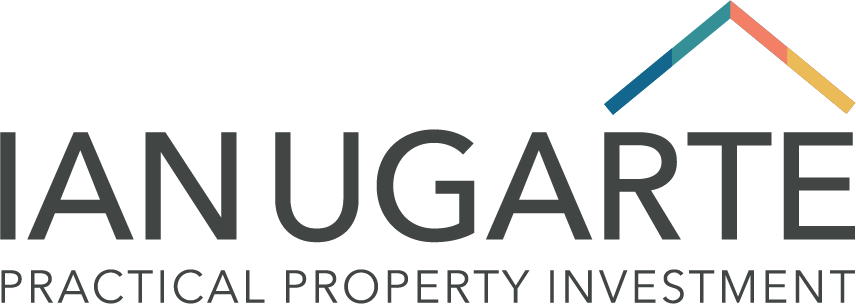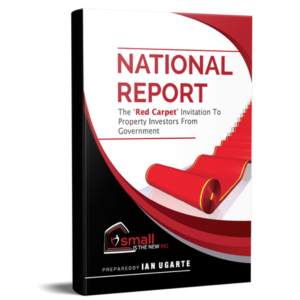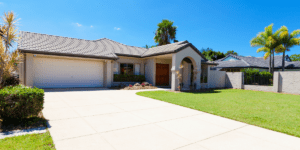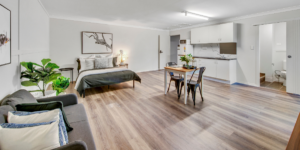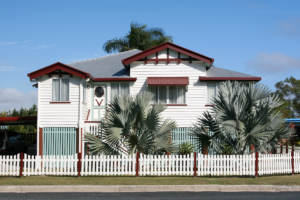If you’ve been looking at the rates of return for commercial properties (currently at 5 to 10% net), and thinking, I’d like a piece of that action, please read this blog first (and watch Ticker HOME episode 22). It’s important to know what you’re getting into with commercial real estate investment in Australia – and these three risks kind of summarise it for me.
1. You’ll need a bigger deposit
The first thing you have to be aware of is you’ll need to put down a minimum of 30%, sometimes 40%, maybe even 50% for a deposit. Compare that to residential property, where it’s more like 20% or 10% – or in some cases 5%. (At the time of writing, single parents in Australia can buy a residential property on a 2% deposit.)
In commercial, you’re really chewing up a lot of cash on equity into one deal. What that means is you’re not diversifying, you’re limiting how many other deals you can get into, and ultimately you’re not spreading your risk like you should.
Also, lenders will usually only lend up to 70% of the value of commercial or industrial properties, (there’s no mortgage insurance to offset the risk for banks). And there are fewer lenders available than with residential.
SCROLL DOWN to find out how commercial property is valued.
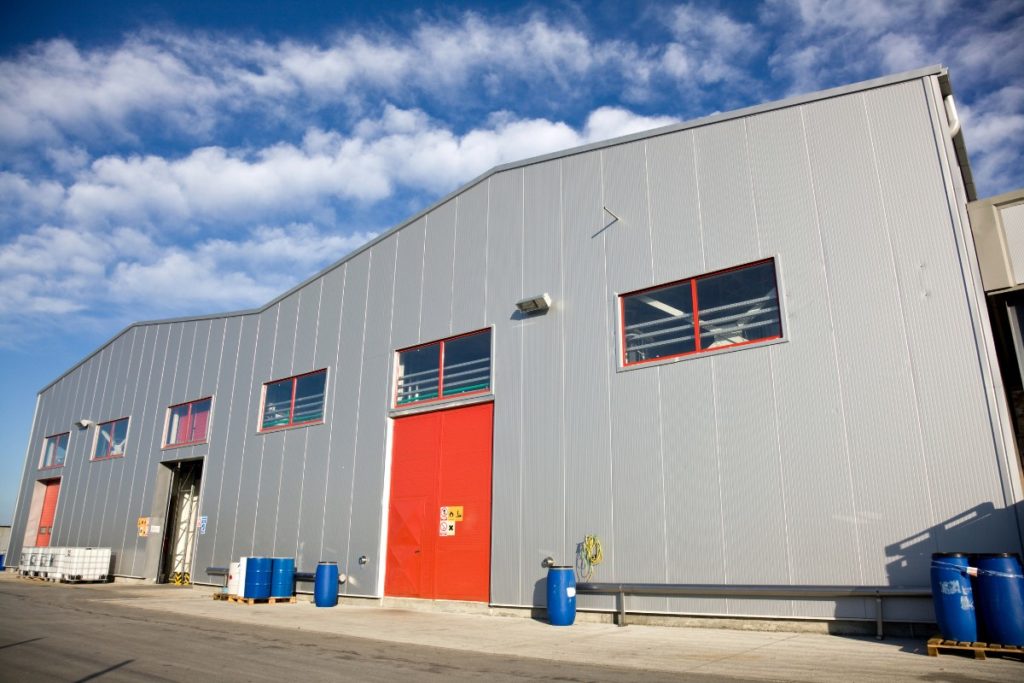
2. Value is based on the lease
The length of the lease held on the property and its value, are what determines the value of a commercial property. (FYI, the average commercial lease in Australia is around eight years.)
This is very different to residential property value, which goes up, or stagnates, or drops, according to the market, and isn’t really affected by whether you have a tenant or not.
With rising commercial vacancies in COVID and more sub-leases available, it’s a tenant’s market. When tenants are being told that “everything is negotiable” and incentives are the norm, it’s a rocky time for commercial real estate investment in Australia. (Except for owners of warehouse space, which is in higher demand than ever – just shows how unpredictable the market is.)
What if I buy a property that’s already leased for years to come – isn’t that a good investment?
If you do buy a property with a five-year lease still intact, as an example, you are purchasing future cashflow right now. Which is a good thing. The downside is that if the tenant doesn’t take up their option, and moves out at the end of the lease – whether it’s three, four or five years from now, you’re back to square one. Zero income.
In the end, long leases don’t necessarily equal long returns. And you’ve got to be very careful with the lease terms, ensuring that CPI increases are written into them. Always get a lawyer to give advice here.
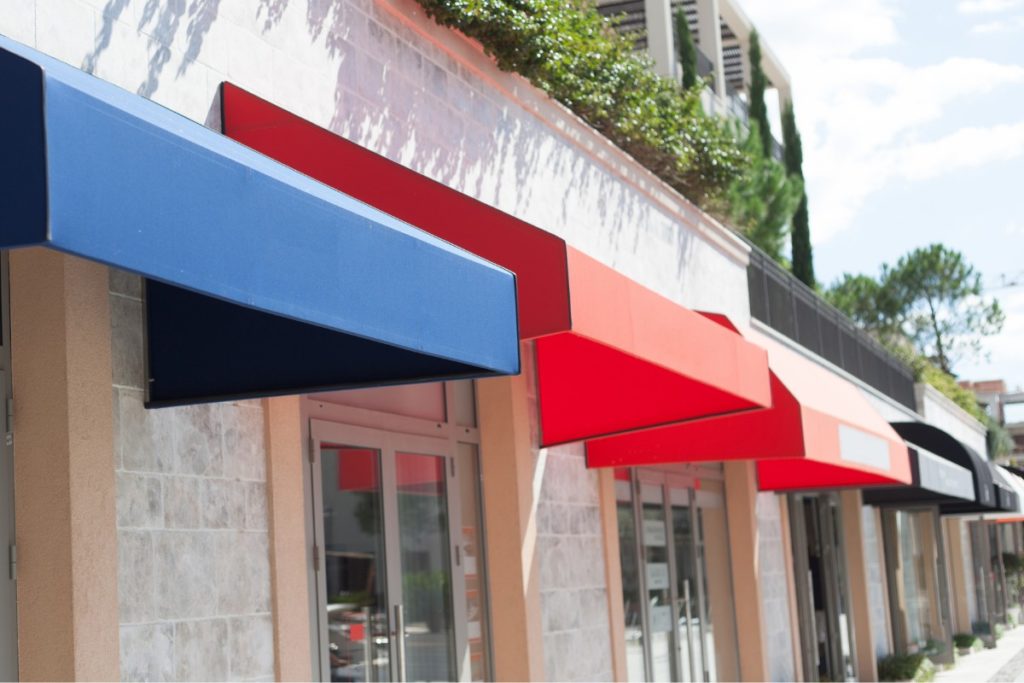
3. Tenants are harder to find
I’m sure I’m not alone in this, but COVID has shown me how things can change overnight. You only have to look at how many landlords who thought they were set for life, are facing long-term vacancies in 2021.
Whether your property is a shopfront, a medical suite or an office – you’re always going to have some degree of difficulty re-tenanting if someone moves out.
That’s because most commercial spaces are at least a little specialised and need to attract a specific type of tenant. There’s just not that many people knocking down your door to rent your property. So again, you’re limiting your options.
You’re also at the mercy of economic fluctuations. For example, with COVID forcing people home to work, office space vacancy rates in CBDs around Australia rose to 11.9 by end June, the highest rate since 1996.
You can see how you could go from an 8% return to a 0% return very quickly. The money soon starts to disappear out of your bank account when you have to pay a big cost upfront and have no income incoming.
If you look at residential property, the market has responded completely differently in COVID. It has emerged stronger than ever because there are large numbers of people needing somewhere to rent and there’s a shortage of housing.
And even if you are struggling to find a residential tenant, you can drop your rate and eventually someone will sign up, because people always need rentals, and populations generally get bigger not smaller.
Find out why co-living micro-apartments are a great strategy for beginner investors, HERE.

But wait! There are two upsides with commercial real estate investment in Australia
1. Outgoings are paid by the tenant
One of the biggest advantages of commercial property is that unlike residential, the tenant is responsible for covering costs incurred on the property. The only thing the owner needs to take out of their rental income – presuming they are getting some, is their managing agent’s fees.
Whereas with a residential property, the landlord has to pay for home insurance, landlord insurance, strata fees, letting agent’s commission, council rates, water rates, repairs etc.
If you own a co-living type of property as per the High Income Real Estate model, you might also be paying electricity, gas, internet, gardener, cleaner etc., for your co-living residents, albeit out of a much higher income than a traditional rental.
2. You can significantly increase your property value
If you know what you’re doing, there are ways to bump up your commercial property’s value.
As an example, if you buy a property that’s under market rent, you could increase the rent, which will increase the lease value.
If you buy it cheaply, without a tenant in place, you could add value by working hard to find a tenant and getting that lease signed.
You could also look at different options for using the square meterage – could you split it up, even strata title it, and rent out areas separately? That’s increasing what they call the cap rate or the return on that property.
With thinking like this, you can sometimes make hundreds of thousands of dollars overnight, on paper – if you buy well in the first place. You just need to know what your numbers are and work those numbers.
SCROLL DOWN and for my final words of advice…

Final words of advice
This probably doesn’t come as much of a surprise but I’ve always preferred to invest in residential property, or at least a mix of residential and commercial. On the surface, the higher return on your money may sound appealing, but there many risks with commercial, that most people are just not aware of. (Also I really like contributing to housing affordability.)
To really nail commercial real estate investment in Australia, you need to be a sophisticated investor. You’ll need to understand your own appetite for risk, and choose property to match that. It’s an area that’s fraught with danger, and if you go off and start investing into different styles of properties you could very easily lose a bundle.
If you’re a newbie, my advice, as always, is: mentor, mentor, mentor. Find someone who specialises in commercial, who invests in it and knows it inside and out, and who’s already made all the mistakes. The smartest thing in the world is to learn from someone else’s mistakes rather than making them yourself. You don’t want to be going into a property without the knowledge base or the support of someone who’s in your corner – even if you have to pay them a fee for the privilege.
Be warned though: a seasoned commercial investor will drive you mad because they’ll probably block 90% of your deals all the way along!
Looking for a cash flow positive investment property? Check out our recent co-living investor success stories, HERE.
